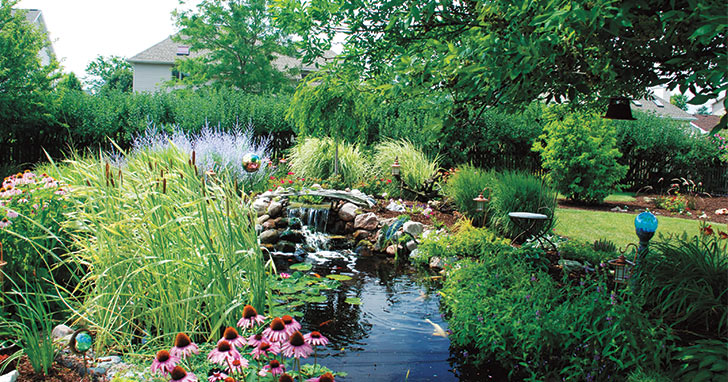
Longer days and gentle summer nights mean more time to enjoy your koi pond or water garden. However, with warmer water temperatures come new sets of challenges that can compromise the health of your pond. Maintain a healthy pond environment this summer with the following easy pond care tips.
Prevent poor water quality due to overfeeding
Pay special attention to your fishes' food intake. During warm summer days, pond fish are more active and go into "overdrive." They eat more and grow faster and that means greater waste production. Use an automatic feeder to monitor how much food your pond fish receive per feeding. Avoid overfeeding and minimize negative impact on water quality and filtration with a programmable feeder.
Feel free to give your koi or goldfish nutritious treats. Fresh fruits and vegetables are also great treat options. Offer just enough so your fish are able to finish it within a few minutes and be sure to remove any uneaten food.
Optimize biological filtration
Boost existing biological filter performance with supplementary biological filter media or beneficial bacteria. Bacterial additives break down toxic waste materials more efficiently when water temperatures are warm. Take advantage of this natural phenomenon. However, supplementing biological filtration during summer should only be done in conjunction with increased oxygen levels.
Add more oxygen
Install an aeration pump to prevent harmful, oxygen-poor environments. As pond water warms up, it steadily loses its ability to hold on to oxygen. The supply of naturally available oxygen in pond water decreases during summer while the biological demand for oxygen increases. These allow efficient gas exchange to reduce buildup of harmful gasses while effectively increasing pond oxygen level. High oxygen content in pond water keeps your pond fish healthy and oxygen-loving beneficial bacteria working their best.
Improve water quality with
chemical filter media
Fortify pond filtration systems with chemical filter media. Most pond filtration systems are pushed to their limit during the summer. The additional filtering capacity of chemical filter media helps remove more pollutants and helps maintain good water quality for a longer period of time. Chemical filter media actively removes pollutants, including the algae-fueling nutrient, phosphate. To maintain optimum water quality, replace exhausted chemical filter media on a regular basis.
|